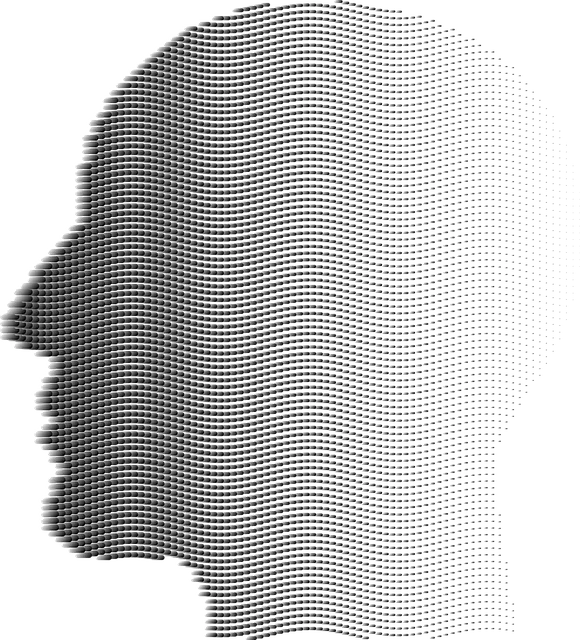Kaiser Permanente training programs in Denver specialize in mental wellness group facilitation, creating safe spaces for diverse individuals to share experiences and develop emotional coping skills through innovative empathy-building strategies. Their comprehensive curriculum includes stress management workshops, mindfulness meditation, and evidence-based practices, empowering participants with tools for personal growth and building supportive communities throughout Denver. Facilitators expertly navigate dynamic needs while maintaining confidentiality, offering tailored guidance and crisis intervention through interactive activities and personalized feedback, fostering positive mental health growth and successful community outreach initiatives.
Mental wellness group facilitation plays a pivotal role in fostering collective support and enhancing individual well-being. This article explores effective techniques for facilitating such groups, drawing insights from Kaiser Permanente’s comprehensive training programs in Denver. We delve into understanding mental wellness dynamics within groups, highlighting key strategies for engaging participants, managing challenges, and maximizing benefits. By examining these aspects, we aim to empower facilitators to create nurturing environments that promote healing and growth.
- Understanding Mental Wellness Group Facilitation
- Kaiser Permanente Training Programs in Denver: An Overview
- Effective Techniques for Group Sessions
- Benefits and Challenges of Group Facilitation
Understanding Mental Wellness Group Facilitation

Mental wellness group facilitation involves skillfully guiding a diverse range of individuals through shared experiences and discussions aimed at improving emotional well-being. It’s an art that goes beyond simply hosting conversations; it entails creating a safe, supportive environment where every participant feels heard and valued. Facilitators play a crucial role in fostering open dialogue, encouraging active participation, and imparting valuable coping skills development techniques.
At Kaiser Permanente training programs Denver, professionals are equipped with the latest tools and methodologies to effectively navigate complex emotional landscapes. Through innovative empathy building strategies, facilitators help individuals process their experiences, understand their emotions, and develop effective coping mechanisms. This holistic approach supports not just the individual, but also facilitates collective healing within the group, mirroring the powerful emotional healing processes that can occur in supportive communities.
Kaiser Permanente Training Programs in Denver: An Overview

Kaiser Permanente Training Programs in Denver offer a range of resources for enhancing mental wellness and fostering strong communities. These programs are designed to equip individuals with practical skills and knowledge, promoting both personal growth and collective well-being. One notable aspect is their focus on Empathy Building Strategies, which play a crucial role in creating supportive environments and strengthening interpersonal connections.
The curriculum includes Stress Management Workshops tailored to various demographics, from healthcare professionals to the general public. These workshops often incorporate techniques such as Mindfulness Meditation, known for its effectiveness in reducing stress and improving focus. By participating in these programs, Denver residents can access valuable tools to navigate life’s challenges, ultimately contributing to a healthier and more resilient community.
Effective Techniques for Group Sessions

Effective techniques for group sessions play a pivotal role in mental wellness programs, especially those offered through Kaiser Permanente training programs Denver. Facilitators can create a supportive and engaging environment that encourages open communication and fosters meaningful connections among participants. One powerful approach is to incorporate interactive activities that promote active listening and empathy, such as role-playing scenarios or group discussions centered around shared experiences. This not only enhances coping skills development but also strengthens the sense of community within the group.
Additionally, integrating evidence-based practices like mindfulness exercises and stress reduction methods can significantly contribute to successful group facilitation. Teaching participants techniques for managing stress and preventing burnout is essential in today’s fast-paced world. By incorporating regular check-ins, progress assessments, and personalized feedback, facilitators can tailor their approach to meet the unique needs of each individual, ensuring that the group session remains relevant and impactful throughout the Kaiser Permanente training programs Denver curriculum.
Benefits and Challenges of Group Facilitation

Group facilitation offers a unique and powerful approach to enhancing mental wellness, with numerous advantages when executed effectively. One of the key benefits is the sense of community it fosters; individuals share experiences, gain support, and build connections, creating a safe space for open dialogue. This collective environment can significantly boost participants’ confidence and self-esteem, as they learn from one another’s resilience and coping strategies. Moreover, group sessions allow facilitators to provide Crisis Intervention Guidance, offering immediate support and practical tools to navigate distressing situations.
However, facilitating mental wellness groups also presents challenges. Balancing the needs of diverse individuals is crucial; some may require more personalized attention while others thrive in a group setting. Facilitators must adapt their approach, ensuring no one feels left behind. Additionally, maintaining confidentiality while allowing open sharing can be delicate. Effective facilitation requires a skilled individual who understands the dynamics of group interactions and is adept at handling sensitive topics. With proper training, such as those offered by Kaiser Permanente’s programs in Denver, facilitators can navigate these challenges and create an empowering environment for positive mental health growth, including the successful implementation of Community Outreach Program initiatives.
Mental wellness group facilitation is a powerful tool for fostering community and individual growth. As demonstrated by Kaiser Permanente training programs in Denver, structured sessions led by trained facilitators can significantly enhance participants’ well-being. By leveraging effective techniques discussed in this article, professionals can create supportive environments that encourage open dialogue, build resilience, and promote positive mental health outcomes. While challenges exist, the benefits of group facilitation are undeniable, making it an essential component of comprehensive wellness initiatives.






